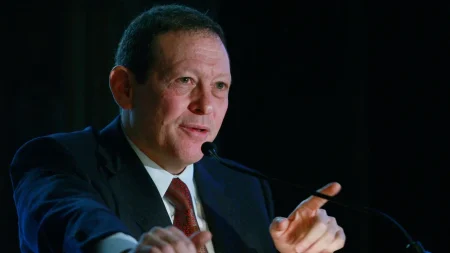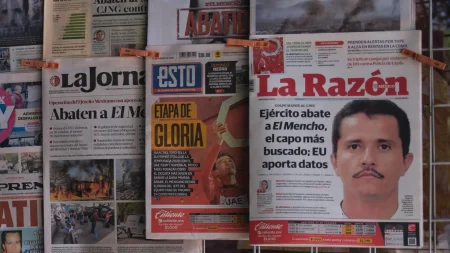Trump’s Rhetoric on Immigration Clashes with His Business Practices as Foreign Workers Flock to Mar-a-Lago and Other Properties
Former President Donald Trump’s inflammatory rhetoric targeting immigrants and undocumented individuals has been a hallmark of his political career. His pronouncements often paint a picture of a nation under siege, overrun by criminals and undesirables. Yet, a closer examination of his business practices reveals a stark contradiction: a heavy reliance on foreign labor to staff his various properties, including the opulent Mar-a-Lago resort. This reliance underscores the disconnect between Trump’s public pronouncements and the operational realities of his businesses, raising questions about the sincerity of his anti-immigrant stance.
Newly released data from the Department of Labor sheds light on the extent of the Trump Organization’s dependence on foreign workers. In 2024, the organization sought to hire a record 178 temporary foreign workers, continuing a long-standing pattern. Over the past 17 years, Trump’s businesses have applied to employ at least 1,849 temporary foreign workers, including 382 during his first term as president. This data reveals a consistent practice of utilizing foreign labor, even while Trump was publicly advocating for stricter immigration policies and decrying the influx of immigrants. The timing of these hiring requests, coinciding with his inflammatory rhetoric, amplifies the dissonance between his words and actions.
The influx of foreign workers to Trump properties is not limited to unskilled labor. The positions range from servers and housekeepers to clerks and kitchen staff, indicating a need for a variety of skill sets. The wages offered for these positions, between $14.17 and $23.01 an hour, fall within the typical range for such roles in the hospitality industry. This raises questions about the availability of American workers to fill these positions and the Trump Organization’s efforts to recruit domestically. The data suggests a preference for foreign labor, despite the availability of local workforce, potentially due to cost considerations or other factors.
The irony of the situation is further highlighted by the locations where these foreign workers are employed. Mar-a-Lago, Trump’s Florida resort, and his golf course in Bedminster, New Jersey, both sites of significant legal and political scrutiny during his presidency, are among the properties utilizing foreign labor. These locations serve as frequent residences for Trump and have been at the center of controversies, including the Justice Department investigation into the handling of classified documents. The presence of foreign workers at these sensitive locations, while Trump publicly rails against foreign influence and threats, underscores the stark contrast between his political posturing and his business practices.
The process of bringing temporary foreign workers into the U.S. is complex, involving multiple federal agencies. Employers must first obtain certification from the Department of Labor, demonstrating a need for foreign labor. They then petition the Department of Homeland Security and finally, prospective workers apply for visas through the State Department. The Trump Organization utilizes both H-2A visas for agricultural workers and H-2B visas for non-agricultural workers. This complex process highlights the deliberate and systematic nature of the Trump Organization’s reliance on foreign labor, indicating a strategic decision rather than a circumstantial necessity.
The juxtaposition of Trump’s inflammatory rhetoric and his business practices raises fundamental questions about his stance on immigration. While he publicly vilifies immigrants and calls for stricter border controls, his businesses quietly benefit from the very labor pool he demonizes. This discrepancy between words and actions undermines the credibility of his anti-immigrant platform and suggests a opportunistic approach to immigration policy, tailored to suit his business interests rather than reflecting a genuine concern for national security or economic well-being. The continued reliance on foreign labor during his presidency and beyond further solidifies this perception of hypocrisy.









